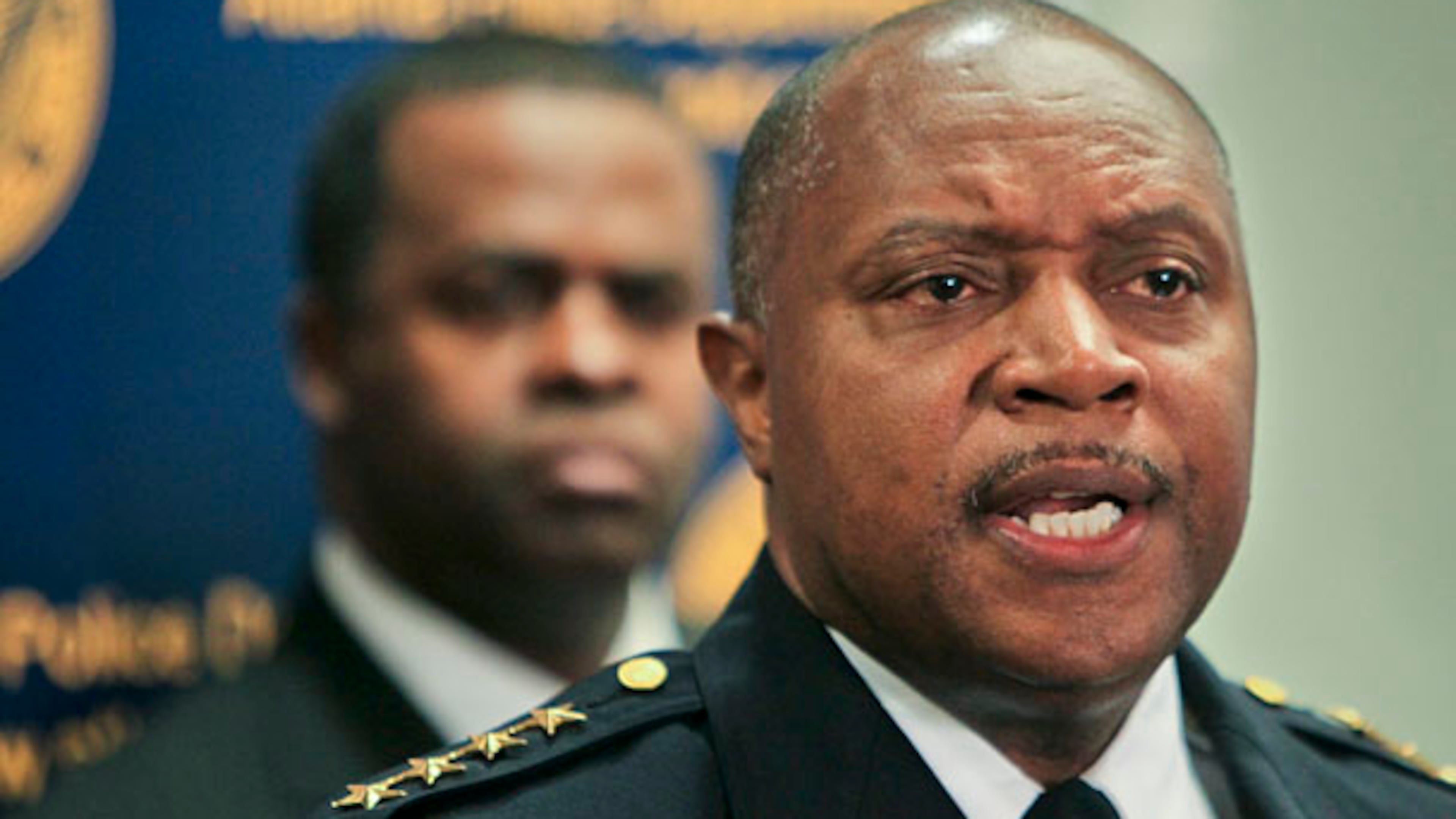Red Dog disbanded: Atlanta police to shut down drug-fighting unit

Former Atlanta Police Chief Eldrin Bell could hardly believe that the Red Dog unit, the hard-charging drug strike force he headed in the late 1980s, would be no more.
"What?" Bell shouted when he heard the news.
But over at the natatorium in the Old Fourth Ward, the reaction was different. "People started cheering," said Matt Garbett, president of the Old Fourth Ward Neighbors. “There is obviously some ill will toward the Red Dog unit.”
Police Chief George Turner, with Mayor Kasim Reed standing directly behind him, announced Monday that he is disbanding the squad known for its fatigues and in-your-face tactics. He said it will be replaced with a unit that will use technology and sophisticated analysis to prevent and solve violent crimes.
"There's going to be a blanket rule in the city," Reed said. "You will not put your hands on people in this town. You will not do violence in this city and it stand."
In December, the city agreed to pay more than $1 million to settle a lawsuit brought by patrons of the Atlanta Eagle bar, who claimed that Red Dog officers violated their civil rights in a 2009 raid on the bar.
Turner denied Monday that he was taking down the 29-member team as a response to allegations the unit used excessive force.
"This is not a result of any one incident," he said Monday. "I've discussed with my folks for the last six months about retooling the Red Dogs."
Not a small number of people say that the Red Dog was all about putting its hands on people -- for good or ill. The unit's supporters say it made the streets safer by cracking down on drug dealers and other street criminals. The squad's critics say it ran roughshod over constitutional protections.
"I think the crime is going to go back up again," said John Pavlin, who heads up public safety for the West End Neighborhood Development. "We know who the drug dealers are. They need to make it uncomfortable for them."
But Bruce Harvey, a defense lawyer, said the unit was famous for illegal searches and arrests. “They were traditionally a unit that did what it wanted to do and found a way to justify it afterward," he said.”
Red Dog -- which is said to stand for Run Every Drug Dealer Out Of Georgia -- came into being during the crack-cocaine epidemic in the 1980s when Atlanta, like other cities had open-air drug markets and almost weekly drive-by shootings.
Bell, who was named to head the unit in 1989, described how a patrol car with no light array on the roof, full of Red Dogs, would sneak up on criminals selling drugs.
"How much impact can a single officer in a single-person car have on drugs?" he asked. "I put a unit together with four people in each car. The element of surprise gave you the opportunity to eliminate drugs and violence in the community without the use of excessive force.
"As a result of how we policed Atlanta, what I'm hearing from people, even now, is that we struck fear in the hearts of criminals," he said.
Turner said the unit that will replace the Red Dog squad won't be less aggressive, but he insisted that new unit of 50 officers will use smarter tactics.
Reed made it clear that he wants a unit made up of high-performing officers who will make sure arrests meet constitutional muster.
"I think that you have to be tough on crime and smart on crime by making a difference on the streets of Atlanta," he said. "But you also have to do it with a sense of humanity and decency, and in a constitutional manner."
Makeda Johnson chairs the city's Neighborhood Planning Unit, which encompasses Vine City and English Avenue and includes "The Bluff," a neighborhood notorious for drug dealing ranging from heroin to crack cocaine. She said Red Dog was more successful at driving the drug trade underground than stamping it out.
"I don’t know if having Red Dog has been very productive," she said. "If we still have people walking up to sell drugs and we still have people coming from outside our community to purchase drugs, then clearly the police strategy has not worked. That is not rocket science'"
Frank Rotondo, executive director of the Georgia Association of Police Chiefs, applauded Turner's move, suggesting that it might be time for current Red Dog officers to transition to less rigorous policing duties for a while.
"Officers in those specialized units have to rotate," said Rotondo, a 20-year veteran of the force in Suffolk County, N.Y. "I think that was why the Red Dog unit had some bad press. This is a positive move."
There were mixed opinions from city council members Monday.
Ivory Lee Young, the chairman of the city’s Public Safety Committee, said he trusts Turner’s judgment in disbanding the unit.
“When the unit started, you had crack-cocaine running up and down the streets,” Young said. “This is a new day, and I support the decision the chief has made in how we use our resources.”
But City Council President Ceasar Mitchell called the decision “disappointing.”
"I am concerned about the signal disbanding the Red Dog Unit will send," Mitchell said. "If stronger supervision and better training is needed for the Red Dog Unit, let’s take that approach."
Bell said he welcomes the new direction.
"Any unit you develop, criminals get accustomed to," he said. "So you have to change."
Staff writers Ernie Suggs and Larry Hartstein contributed to this story.


